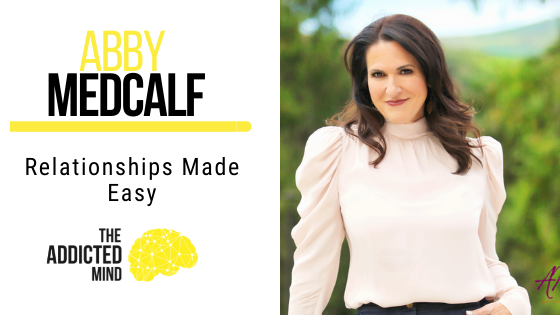When you’re in addiction recovery, you need to understand that the opposite of addiction isn’t sobriety – it’s connection. Therefore, you can be happily married or in a happy relationship (if you’re not married) even if your partner won’t do anything. It’s all about what you do.
Taking Compassionate Responsibility
Many people have codependency feelings where they calibrate to other people.
For instance, you’re in a good mood, your partner comes home in a bad mood, and, suddenly, you’re in a bad mood too.
To combat this, you have to be the dominant vibration in the room. Have other people calibrate to you; don’t calibrate to them. Co-create every relationship you’re in. Be the one who creates that positive momentum.
How exactly do you do that?
Relationship maven, Abby Medcalf, and author of the #1 Amazon best selling book, Be Happily Married: Even If Your Partner Won’t Do A Thing dishes out these tips to help you create a positive momentum all throughout the day.
1. Get that momentum in a positive direction right away.
First off, don’t hit the snooze button because it creates sleep inertia grogginess. Research supports that you will be more tired using snooze than just getting out of bed. Once your alarm goes off, bring yourself to the present right away by appreciating something that’s happening.
2. Be grateful – feel it, and be in it!
Gratitude lists are great but if you can just take one thing from your gratitude list, really feel the state of it, and be in it, you will get more benefits than you would from writing 15 pages of gratitude lists. Pay attention to the little things and those little appreciations you hold onto will change you over time.
3. Align yourself with what you want, not what you don’t want.
Have you ever thought of a new car, and suddenly seen that car everywhere? Your conscious thought of a car ordered your subconscious to look for that car.
The reticular activating system filters between your conscious and your subconscious mind. When you consciously think of something, it sends an order to the subconscious to look for it. So you have to be gearing your RAS for what you want and not what you don’t want.
4. Plan your feelings.
Plan your feelings like you plan your day. Set your intentions. Think about how you want to be walking in the door.
You can have a seemingly perfect day but, if you feel like crap, it wasn’t actually a good day.
If you want to learn more about improving relationships through your recovery journey, check out Episode 131: Relationships Made Easy with Abby Medcalf.

